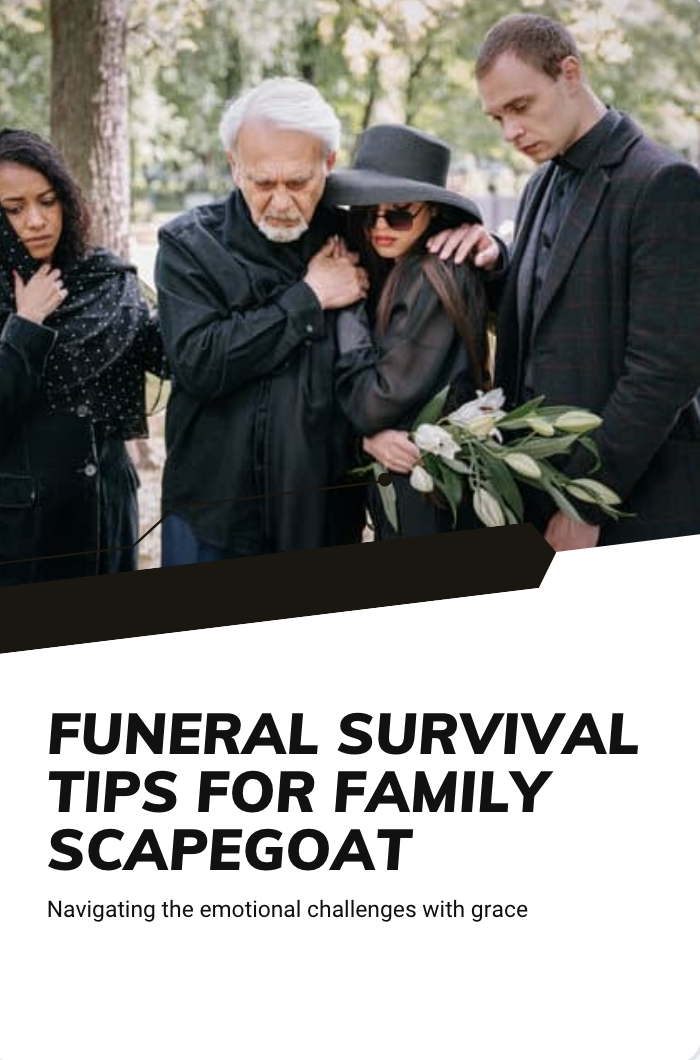We may earn money or products from the companies mentioned in this post. As an Amazon Associate I earn from qualifying purchases. Disclosure of Material Connection: Some of the links in this post may be "affiliate links." This means if you click on the link and purchase an item, I will receive an affiliate commission.
Funerals are emotionally intense experiences, and for those who have long felt like the family scapegoat or black sheep, they can be especially difficult. Being a scapegoat at a funeral is going to be intense. These events often bring together people with long-standing tensions, unresolved history, and unspoken pain. For scapegoats—those unfairly blamed or ostracized within their family—the grief of losing a loved one can be overshadowed by anxiety, isolation, or emotional triggers. But healing is possible, even in the most challenging of spaces.
Supporting the Scapegoat: Navigating Family Dynamics During a Funeral
1. Honor Your Own Grief
You are allowed to grieve, no matter how complicated your relationship with the deceased or the family may be. Give yourself permission to feel sadness, love, anger, or confusion—all of your emotions are valid. Your experience is real, and you do not need anyone else’s permission to mourn in your own way.
2. Set Emotional Boundaries
Funerals can be emotionally charged, and it’s okay to protect your peace. If you anticipate toxic behavior, plan ahead: decide who you will engage with, how long you’ll stay, and where you’ll go if you need a break. It’s okay to step away, find a quiet space, or even skip certain gatherings if they jeopardize your well-being.

3. Bring a Support System
Attend with someone who understands your situation—whether a friend, partner, or therapist. Having an ally who can validate your feelings and stand by your side can make all the difference in feeling grounded and safe during family interactions.
GET a FUNERAL FRIEND HERE
4. Release the Need for Validation
One of the hardest parts of being a scapegoat is the desire to be understood by those who refuse to see you clearly. Funerals are not always the time for resolution. Instead, focus on validating yourself. You know your truth. You do not need to prove it to anyone.
5. Create Your Own Rituals
If the traditional funeral feels unwelcoming or painful, create your own space for remembrance. Light a candle. Write a letter. Visit a place that held meaning for you and the person who passed. Your way of honoring the deceased is just as sacred and important as anyone else’s.
6. Practice Self-Compassion
You’ve carried more than your share of emotional weight. Offer yourself the gentleness and care you may not receive from others. After the funeral, rest, reflect, and surround yourself with people who truly see and appreciate you.
You are not alone. Being the scapegoat does not mean you are broken—it means you were strong enough to see the truth. In this time of loss, give yourself the grace to heal in the way you deserve.


